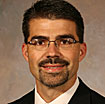Commentary on Psalm 89:1-4, 19-26
At the heart of Psalm 89 is the question of faithfulness.1
More particularly, the question centers on the faithfulness of God. As a royal psalm, the psalm celebrates and explores the relationship between God and David, his anointed one, and those that follow in his stead. The focus on David in Psalm 89 no doubt creates a reasonable link with the other readings assigned to the fourth Sunday of Advent. Second Samuel 7 recounts the giving of the covenant to David, while Luke 1:26-38 recalls Gabriel’s words to Mary that Jesus will assume the throne of his ancestor David.
This royal psalm can be broken down into four distinct sections. The first four verses introduce the theme of God’s faithfulness to David. The second section, verses 5-18 recount God’s power over creation. The third section, verses 19-26, refers directly to God’s ruler in Jerusalem. The remainder of the psalm laments the fall of Jerusalem and the shame that befell the king at the hands of the enemy.
The introductory section (verses 1-4) reminds the reader of the faithfulness of God in establishing this covenant. The psalmist promises to sing of the steadfast love, hesed, and faithfulness, ămûn of God. The pairing of these terms appears repeatedly throughout the psalm (verses 1; 2; 14b; 24; 33; 49), reinforcing the centrality of this theme. This work began by God is promised to be as “firm as the heavens” (verse 2), meant to extend to all generations (verse 4).
The following section, verses 5-18, does not appear in the Advent reading, but contributes much to the opening claims of the psalm. These verses answer the question, “Who is this God that swears such a covenant?” “By what authority can this God make such claims?” The scene is set within the divine council (verse 7), with the holy ones around him. A similar scene appears earlier in Psalm 82 (cf. Psalm 29). In both psalms, however, the intent is to affirm that the God of Israel is the God over all, the one who rulers the cosmos and all that are in it.
The affirmation of God as creator continues in the following two verses, with each using imagery associated with creation and chaos. Verse 9 notes that God rules over the raging sea (yām), stilling the tumultuous waters. This God stands over creation, possessing the power to hold back the churning, watery chaos that threatens the orderliness of all creation.
Verse 10 claims that God has crushed Rahab, a mythic chaos figure from other Ancient Near Eastern texts. In this creation tradition, the deity battles mightily against the chaos dragon. The defeat of Rahab does more than signal the overcoming of chaos; it is meant to affirm the cosmic rule of the warring deity (God). Victory in creation signals the absolute certainty of divine kingship. In affirming the cosmic kingship of God, the psalmist lauds,
The heavens are yours; the earth also is yours.
The world and all that is in it, you have founded them (Psalm 89:11).
The steadfast love and faithfulness of God are predicated in part upon this recognition. The psalmist explains in verses 14 that “righteousness and justice are the foundation” of God’s throne and that steadfast love and faithfulness go before God. As James Mays has explained, “Attributes that are usually spoken of in connection with the Lord’s way with Israel are portrayed as inherent in the Lord’s cosmic rule.
The divine righteousness and justice are manifest in the victory over chaos, and steadfast love and faithfulness in the trustworthy and reliable rule over chaos.”2 The opening claims in the psalm (verses 1-2) are rooted in this confession about God’ cosmic victory over the chaos, both then and now.
Verses 19-26, the second part of the lectionary reading, connect the kingship of David with the kingship of God. The kingship of this “chosen one” is clearly the work of God. Lest one think the rise of the Davidic dynasty rests solely with the political prowess of a shepherd boy from Judah, one is reminded by the psalmist that the founding of David’s kingship is the work of this Creator God who sits enthroned over the Divine Council.
It is God who anointed David with holy oil (verse 20). It is the arm of God that strengthened David (verse 21). It is God who will crush the foes of David and strike down those who hate him (verse 22). It is God who will place the right hand of David over the sea (yām) to still the chaos of the day (verse 25). So close will the divine King be to the human king that the latter will say to the former, “You are my Father” (verse 26a).
This familial relationship (father-son) is widely used in the Ancient Near East to depict metaphorically the relationship between human kings and gods. In this text, the claim stands at the conclusion of a series of promises made by God to the human king, ensuring the success of the human king because of the authority of the Divine King.
As is often noted, beginning with verse 38, “But now,” the psalm moves to a lament, questioning the steadfast love of God in light of the despair brought on presumably by the exile. Thus the psalmist holds in tension the claims made in verses 1-37 with the experiences rehearsed in verses 38-51. On the one hand, the people make their claim that God is indeed the Creator God, the one who has overcome chaos and established one like David to lead his people. The steadfast love of God and his faithfulness has accomplished this.
On the other hand, the community anguishes over a reality consumed by the water mire of chaos, a reality that appears to have stripped bare the promises of God. In the final verses, they call God to “remember,” and in remembering, they pray that the steadfast love and faithfulness of God will be made manifest again.
Perhaps that is the prayer of those on journey during Advent. We confess this God is indeed the Creator God, who has set apart a Servant to lead his people. And yet our communities know the watery mire of chaos. So we join with the community in Psalm 89, asking God to remember and in remembering that the steadfast love and faithfulness of God will be made manifest in new ways once more.
Notes
- Commentary first published on this site on Dec. 18, 2011.
- James L. Mays, Psalms (Louisville: Westminster John Knox, 1994), 285.


December 20, 2020